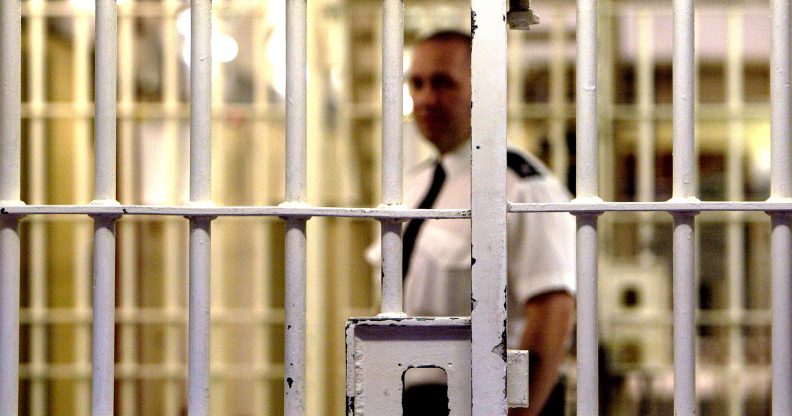Prison watchdog raises ‘serious concerns’ about trans inmates being inhumanely segregated

A prison guard at HMP Pentonville (Ian Waldie/Getty)
An independent watchdog has raised “serious concerns” about the “inhumane” care of trans inmates at a UK women’s prison.
The Independent Monitoring Board (IMB) found that while HMP Eastwood Park is “well run” and treats prisoners fairly and “with respect”, the cases of some transgender women caused the “most concern”.
The prison near Gloucester usually holds three to four transgender inmates at any one time, and according to the annual report, “all transgender offenders are integrated into the main population”.
However, it noted that some were left segregated for more than six weeks while decisions were made about their future.
It’s not clear what form that segregation took, but imprisoning people with little or no meaningful contact with other inmates – otherwise known as solitary confinement – has been strongly condemned by the UN.
A recent report found that prolonged solitary confinement of more than 15 consecutive days is a form of torture that can trigger and exacerbate psychological suffering in inmates who may have experienced previous trauma or have mental health conditions.
IMB chair Arthur Williams noted that some transgender prisoners in Eastwood Park were segregated for longer than 42 days – which is more than twice as long as the maximum duration warned by the UN.
“Most trans prisoners are well integrated into the prison community,” Williams said. “However those who were considered to be a risk to others were segregated for periods in excess of 42 days, before being transferred elsewhere.”
He added that the IMB considered this to be “inhumane treatment”.
Regarding concerns about rehabilitation, the IMB said it had recently been informed there would be no funding in 2020-21 for “long-awaited new classrooms”, which would mean limited numbers of courses to help women rehabilitate.
It also said resettlement services were “inadequate although showing signs of improvement”, with “homelessness undermining progress” when the women were released.
The report said there was “still a lack of suitable accommodation in the community to support those released in maintaining a crime-free life”.

